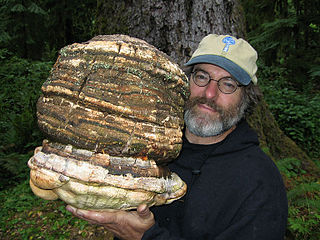A Quote by Paul Stamets
From dead plant matter to nematodes to bacteria, never underestimate the cleverness of mushrooms to find new food!
Quote Topics
Related Quotes
Perhaps it won't matter, in the end, which country is the sower of the seed of exploration. The importance will be in the growth of the new plant of progress and in the fruits it will bear. These fruits will be a new breed of the human species, a human with new views, new vigor, new resiliency, and a new view of the human purpose. The plant: the tree of human destiny.
[I]nfectious disease is merely a disagreeable instance of a widely prevalent tendency of all living creatures to save themselves the bother of building, by their own efforts, the things they require. Whenever they find it possible to take advantage of the constructive labors of others, this is the path of least resistance. The plant does the work with its roots and its green leaves. The cow eats the plant. Man eats both of them; and bacteria (or investment bankers) eat the man.
If we recognise that every ecosystem can also be viewed as a food web, we can think of it as a circular, interlacing nexus of plant animal relationships (rather than a stratified pyramid with man at the apex)… Each species, be it a form of bacteria or deer, is knitted together in a network of interdependence, however indirect the links may be.
We travel because, no matter how comfortable we are at home, there's a part of us that wants - that needs - to see new vistas, take new tours, obtain new entrees, introduce new bacteria into our intestinal tracts, learn new words for "transfusion," and have all the other travel adventures that make us want to French-kiss our doormats when we finally get home.

































